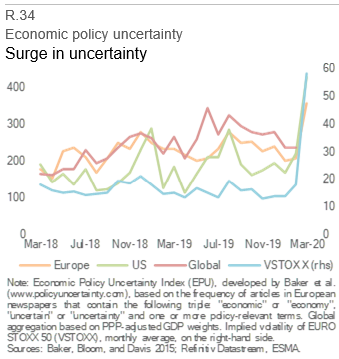Press release – Approving most of EU’s accounts, EP requests new measures to protect EU spending

The Parliament, voting on Wednesday by 499 votes in favour, 136 against and 56 abstentions, granted discharge of the Commission’s accounts for 2018 (covering 94% of the whole EU budget). In the accompanying resolution, adopted by 514 to 95 and 84 abstentions on Thursday, MEPs ask for even stronger protection of EU spending against fraud, corruption, conflict of interest, intentional misuse and organised crime, as well as for EU money to be distributed more fairly and transparently.
The European Parliament granted discharge for the year 2018, adopting 52 discharge reports and 52 accompanying resolutions – see vote results on reports (Wednesday), amendments to discharge resolutions (Thursday 1st voting session) and final votes on discharge resolutions (Thursday 2nd voting session).
Quote
“Today, Parliament sends a strong signal for more fairness and transparency in the distribution of EU subsidies, for the rule of law to be strengthened and for small and medium-sized farmers to be protected against land-grabbing, the misconduct of national authorities or pressure from criminal structures. We need new laws that stop oligarch structures from drawing on EU funds to enrich a few individuals. EU funds are taxpayers’ money and are intended to benefit the majority of citizens. Therefore, we call for a cap on the maximum amount that one person can receive as beneficial owner in the area of agriculture and cohesion”, said the rapporteur for the Commission discharge, Monika Hohlmeier (EPP, DE), after the vote.
Subsidy ceilings and IT system to protect EU funds from oligarchs
To avoid fraud and an uneven distribution of EU subsidies, the Commission should propose a maximum amount of direct payment per natural person, making it impossible for an individual to receive subsidies of hundreds of millions of euros during one MFF-period.
MEPs also ask for a real-time IT information system on payments of the EU agriculture and cohesion funds to be established, including information on individuals who are the final beneficiaries, and, in the meantime, ask for the EP to be informed who the fifty largest EU fund recipients across the EU are.
Mechanism to help farmers fight organised crime
Quoting cases in Italy and Slovakia, the Parliament wants an EU complaint mechanism enabling farmers to inform the Commission when land-grabbing malpractice, misconduct of national authorities, pressure from organised crime and forced labour occur.
Rule out conflict of interest
MEPs ask the Commission to table guidelines to fight conflicts of interest of high-profile politicians and ask the Council to adopt common ethical standards in this regard. MEPs are especially concerned about the situation in Czechia and ask the Commission to supervise payments to companies directly and indirectly owned by the Czech Prime Minister.
Enable the EU Prosecutor to do their job
The resolution stresses that the newly created EU Public Prosecutor’s Office (EPPO) needs at least 76 additional posts and EUR 8 Million in order to deal with an estimated 3000 cases per year.
No EU money if rule of law is violated
MEPs insist that the draft regulation enabling EU funds to be restricted for EU countries where the rule of law is violated should be swiftly approved. This regulation is currently blocked in the Council.
European Economic and Social Committee: address shortcomings before autumn
By 669 votes to 10 and 11 abstentions, MEPs voted to postpone the discharge decision for the European Economic and Social Committee, giving it until September 2020 to follow up on OLAF’s recommendations to improve its code of conduct and to swiftly solve alleged problems related to harassment.
New initiative for cooperation on the Council discharge
For the tenth year in row, MEPs postponed discharge to the Council by 643 votes to 37 and 11 abstentions, giving it until the autumn to supply the information requested by the Parliament.
MEPs have launched a new initiative to solve issues surrounding the annual discharge for the Council, as requested by the Treaties. With an EP negotiating team in place and the outcome of negotiations pending, MEPs postponed the discharge for the year 2018.



